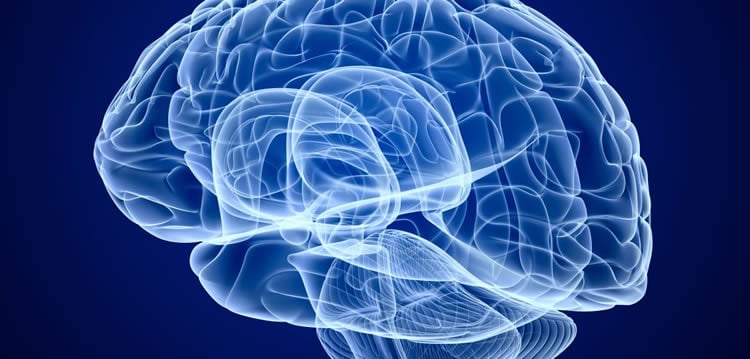Can’t be bothered to read on? It might be due looser connections in your brain.
When brain scientists at Oxford University studied apathy, they didn’t expect to see less motivated people making more effort. Their results suggest that for some people traditionally perceived as lazy, it’s biology – not attitude – that might be the cause.
A team of neuroscientists at Oxford, funded by The Wellcome Trust, decided to study young people to see if there were any differences in the brains of those who were motivated compared to those who were apathetic.
Masud Husain, Professor of Neurology and Cognitive Neuroscience, explained: ‘We know that in some cases people can become pathologically apathetic, for example after a stroke or with Alzheimer’s disease. Many such patients can be physically capable. Yet they can become so demotivated they won’t be bothered to care for themselves, even though they’re not depressed. By studying healthy people, we wanted to find out whether any differences in their brains might shed light on apathy.’
Forty healthy volunteers completed a questionnaire that scored them on how motivated they were. They were then asked to play a game in which they were made offers, each with a different level of reward and physical effort required to win the reward. Unsurprisingly, offers with high rewards requiring low effort were usually accepted, while low rewards requiring high effort were less popular.
When volunteers played the game in an MRI machine, so that researchers could study their brains, a surprising finding emerged. Although apathetic people were less likely to accept effortful offers, one area of their brains actually showed more activity than in motivated individuals. The pre-motor cortex is a key area involved in taking actions. It becomes active just before those areas of the brain that control our movement. Paradoxically, in more apathetic people it was more active when they chose to take an offer than it was in motivated people.
Masud Husain explained: ‘We expected to see less activity because they were less likely to accept effortful choices but we found the opposite. We thought that this might be because their brain structure is less efficient, so it’s more of an effort for apathetic people to turn decisions into actions.

‘Using our brain scanning techniques we found that connections in the front part of the brains of apathetic people are less effective. The brain uses around a fifth of the energy you’re burning each day. If it takes more energy to plan an action, it becomes more costly for apathetic people to make actions. Their brains have to make more effort.
‘As far as we know, this is the first time that anyone has found a biological basis for apathy in healthy people. It doesn’t account for apathy in everyone but by giving us more information about the brain processes underlying normal motivation, it helps us understand better how we might find a treatment for those pathological conditions of extreme apathy.’
This animation, based on results from all people who took part in a study of brain activity in apathetic and motivated people shows, the brain activity prior to a decision to say Yes.
Dr Raliza Stoyanova, Senior Portfolio Developer in the Neuroscience and Mental Health team at the Wellcome Trust, said: ‘Lack of motivation to act towards achieving even simple goals, for example taking medication, is a feature of some brain disorders but also varies naturally within the population. It’s well known that some people are more motivated to achieve the same goals than others, but interestingly, very little is known about the biological basis of such apathy. This study provides important new insights, showing us that the brain systems involved in motivation and preparing for action are important components.’
Source: University of Oxford
Image Credit: The image is adapted from the University of Oxford press release.
Video Source: The video is available at the University of Oxford YouTube page
Original Research: Abstract for “Individual Differences in Premotor Brain Systems Underlie Behavioural Apathy” by Valerie Bonnelle, Sanjay Manohar, Tim Behrens and Masud Husain in Cerebral Cortex. Published online November 12 2015 doi:10.1093/cercor/bhv247
Abstract
Individual Differences in Premotor Brain Systems Underlie Behavioural Apathy
Lack of physical engagement, productivity, and initiative—so-called “behavioral apathy”—is a common problem with significant impact, both personal and economic. Here, we investigate whether there might be a biological basis to such lack of motivation using a new effort and reward-based decision-making paradigm, combined with functional and diffusion-weighted imaging. We hypothesized that behavioral apathy in otherwise healthy people might be associated with differences in brain systems underlying either motivation to act (specifically in effort and reward-based decision-making) or in action processing (transformation of an intention into action). The results demonstrate that behavioral apathy is associated with increased effort sensitivity as well as greater recruitment of neural systems involved in action anticipation: supplementary motor area (SMA) and cingulate motor zones. In addition, decreased structural and functional connectivity between anterior cingulate cortex (ACC) and SMA were associated with increased behavioral apathy. These findings reveal that effort sensitivity and translation of intentions into actions might make a critical contribution to behavioral apathy. We propose a mechanism whereby inefficient communication between ACC and SMA might lead to increased physiological cost—and greater effort sensitivity—for action initiation in more apathetic people.
“Individual Differences in Premotor Brain Systems Underlie Behavioural Apathy” by Valerie Bonnelle, Sanjay Manohar, Tim Behrens and Masud Husain in Cerebral Cortex. Published online November 12 2015 doi:10.1093/cercor/bhv247







